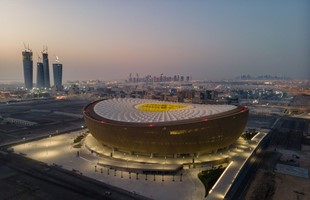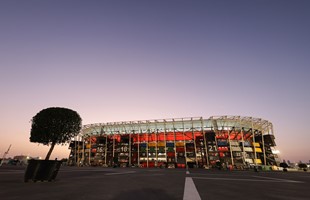Past Event: Doha Dialogue On Sport, Legacy And Human Rights
Past Event
05 Oct 2022 1:00pm to 05 Oct 2022 6:30pm (CET)
Doha
The Centre for Sport and Human Rights, together with the Office of the UN High Commissioner for Human Rights (OHCHR), the International Labour Organization (ILO), the International Organization of Employers (IOE), and the International Trade Union Confederation (ITUC) co-convened the first Doha Dialogue on Sport, Legacy and Human Rights on 5 October 2022.
The meeting was held in Doha during Qatar Foundation’s World Innovation Summit for Health (WISH) and was moderated by the Centre’s Chair Guy Ryder. The co-convenors welcomed representatives from regional and international human rights groups, trade unions, academia, employers and corporate partners, as well as a number of governments for a wide-ranging discussion and candid stocktaking of efforts by Qatar and key international partners to address human rights risks and implement labour reforms in the context of the first FIFA World Cup in the Middle East.
The event was convened to provide a confidential space for engagement and exchange between diverse stakeholders, including World Cup organisers and representatives of key Qatari institutions.
The meeting addressed human rights risks facing specific stakeholder groups in the context of the World Cup and beyond. Participants also recognised achievements and progress made by Qatar during its process to host the World Cup, and engaged in a frank exchange on systemic human rights challenges in Qatar.
The issue of the legacy of the 2022 World Cup - for Qatar, for the wider region, and for future mega-sporting events - was a prominent theme with diverse parties sharing aspirations and expectations. The co-convenors recognised the important legal and other reforms that have taken place in Qatar over recent years and the need for continued focus on implementation and enforcement.
The meeting concluded with an invitation from Qatari partners to all present to return to Doha in 12 months to continue engagement and sharing information on the legacy of the World Cup as a contribution to efforts to transfer knowledge and experience to future events and regions.
The co-convenors hope this dialogue will be the first of many and serve as an annual mechanism for civil society engagement and reflection on ensuring a positive legacy from major sporting events.



